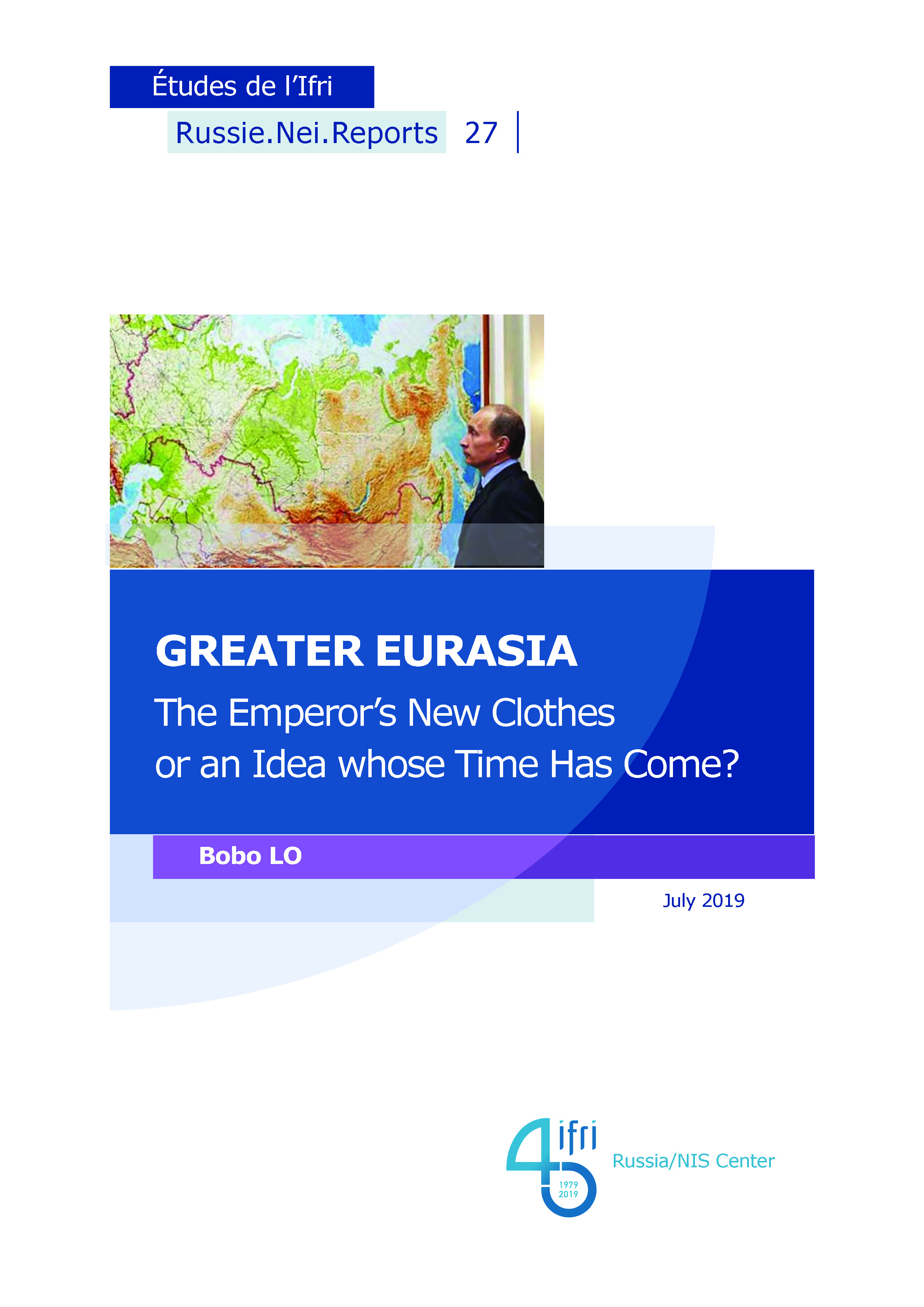Greater Eurasia: The Emperor’s New Clothes or an Idea whose Time Has Come?

The Greater Eurasia project has emerged as the poster-child of Vladimir Putin’s foreign policy, symbolic of a resurgent and self-confident Russia.
It is at once a geopolitical enterprise, political slogan, economic aspiration, and ideological construct. It is an attempt to impart dynamism to the Eurasian Economic Union. Most important of all, it seeks to establish a new, post-American order in which Russia plays a pivotal role. Greater Eurasia is a work in progress. Many of its goals are speculative and the challenges are formidable. To have any chance of success, Moscow must be able to manage the competing interests of other state-actors, in particular China; transcend the limitations of Russian power; and demonstrate sustained political will. There is little evidence so far that it is up to the task. Today, Greater Eurasia is more anti-project than project, an expression of Russian animus toward the liberal international order rather than a serious blueprint for global governance. Yet nothing is fixed. There is still scope for a positive vision to emerge out of the current confusion. Equally, though, the Greater Eurasia project could suffer the fate of previous major Kremlin undertakings, drifting along with little purpose and diminishing conviction.
Bobo Lo is an Associate Research Fellow with the Russia/NIS Center at the French Institute of International Relations (Ifri).

Available in:
Regions and themes
ISBN / ISSN
Share
Download the full analysis
This page contains only a summary of our work. If you would like to have access to all the information from our research on the subject, you can download the full version in PDF format.
Greater Eurasia: The Emperor’s New Clothes or an Idea whose Time Has Come?
Related centers and programs
Discover our other research centers and programsFind out more
Discover all our analysesThe Caspian Sea as an Emerging Energy Hub : Potentials and Limitations
This report analyzes the prospects of the Caspian Sea region — and its key actors except for Russia and Iran — becoming an important energy hub serving the needs of the European Union (EU).
The European Union's Strategic Test in Georgia
The political crisis brewing in Georgia is of an existential nature for the country. What is at stake is Georgia's future as a democratic and sovereign European nation (EU).
Commanders of Putin's Long War: Purged, Reshuffled and Disgruntled
The trend of reshuffling the Russian top military command in the course of a fast-evolving and far from successful war has progressed unevenly both across the Armed Forces’ structures and in time. The rationale for and timing of the abrupt cadre decisions made by Commander-in-Chief Putin often defy logical explanation, and the rare official clarifications are no more informative than the usual information blackout.
Russian Military Manpower After Two and a Half Years of War in Ukraine
In addition to a military victory in Ukraine, the Russian leadership is planning to build up sizable troop formations for a possible conflict with NATO in the Baltic region and the Kola Peninsula. In particular, current plans aim for the military manpower to grow by about 350,000, reaching a total of 1.5 million soldiers and commanders. In the context of the current conflict in Ukraine, this cannot be accomplished without a new wave of mass mobilization.








